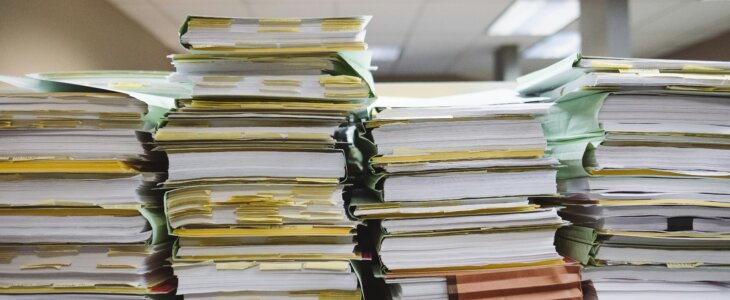In commercial litigation, as in all types of litigation, each party must prove their case with evidence that supports their position. In commercial litigation, the majority of the evidence will be found in the documents that you or the other party are legally required to preserve. Any documents relating to the case must be available for review.
Even though the commercial litigation process and questions about document preservation can be significant sources of anxiety, you have rights and obligations regarding evidence relating to the case. When you work with an experienced commercial litigation attorney, they can advise you about potential unintended or unexpected consequences and improve your chances of reaching a successful outcome for your case.
Document Retention Letters
Once commercial litigation is anticipated or has commenced, both parties have a legal obligation to preserve all documents that may be relevant to the case. To ensure compliance, attorneys often send a “document retention letter” to the opposing party. This letter outlines their duty to preserve evidence and serves as a formal notice. The letter can be used as evidence if the other party fails to preserve documents adequately.
Document Preservation and the Discovery Process
During the discovery phase of commercial litigation, both parties have the right to request and obtain relevant documents from each other. This process is crucial for building a strong case and uncovering essential evidence. All relevant documents must be properly preserved and organized to facilitate discovery.
At this point in the process, it is likely that you will need to provide a significant amount of information under a short deadline. However, it is essential to know what evidence is in your possession before you produce it, as you want to avoid giving away anything privileged or irrelevant.
Most businesses keep their documents in electronic format. Documents pertinent to your case must be retained on a separate drive, and you should also ensure that you back up the files. If you take steps to retain and organize the documents, you can help the discovery process go more smoothly. Failure to do so can lead to significant legal consequences and may harm your case.
Consequences of Failing to Preserve Documents
The failure to preserve relevant documents or the intentional destruction of evidence is known as “spoilation.” Spoilation can result in severe penalties for the offending party. Courts may impose sanctions, such as monetary fines or even the dismissal of claims or defenses. Judges can also order the jury to draw an adverse inference from the fact that the relevant documents were not retained. In extreme cases, such as when the failure to preserve and produce documents appears intentional, the court may hold the offending party in contempt, leading to further legal consequences.
Work closely with your commercial litigation attorney to ensure proper document preservation throughout the legal process and avoid these outcomes.
Contact Levy Goldenberg LLP Today
While every aspect of commercial litigation can be a potential source of stress, preserving the relevant documents is an aspect of your case where you cannot afford to make mistakes. With so much on the line, it is critical that you work with an experienced commercial litigation professional who can protect your rights and enhance your chances of success.
The seasoned legal team at Levy Goldenberg LLP has extensive experience serving businesses of all sizes in the New York City metropolitan area. We offer the sophisticated legal support of a large firm with the individualized attention of a boutique practice. Contact us today for a consultation to learn more about how our experienced commercial litigators can fight for you.
